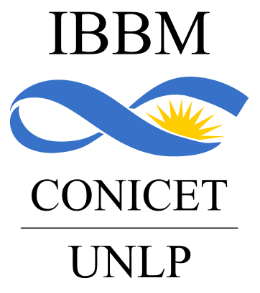
Universidad Nacional de la Plata - Instituto de Biotecnología y Biología Molecular
The Instituto de Biotecnología y Biología Molecular (IBBM) was founded in 1991 as part of the University of La Plata. Since 2007, with the rapid growth in human resources and academic production, the IBBM was incorporated into the national research council (CONICET) system of science centers and Institutes. The IBBM is a research centre with about 80 scientists, PhD students, postdocs, professionals, and technicians.
The main objectives of the IBBM are the promotion and execution of scientific and technological research tasks in the great area of biotic interactions between microorganisms and their hosts, the transfer of results to the socio-productive environment, and the training of qualified human resources to favour both the development of knowledge as its application and projection to the whole society.
The University of La Plata (UNLP) located in La Plata city, about 50 km away from Buenos Aires, was founded in year 1897. UNLP is made up of 17 faculties and 3 schools, devoted to teaching, research and extension in diverse fields from medicine to philosophy. With more than a century of experience, the UNLP continues to pioneer cutting-edge cultural, artistic and scientific studies and developments.
CONICET is the major national governmental science council, which promotes science by supporting PhD students, research institutes and scientists; it was created in the year 1958.
Role within INCREASE
To examine target genomic plant genes involved in the symbiotic interaction with rhizobia, identify variations and polymorphisms and determine allelic diversity within populations, associate them to the diversity of representative members of the core collection of common bean, lentils, and chickpea which differ in phenotypic traits. Common bean and chickpea, for which genomes data and availability of genomic resources are in place, will be initially targeted for this task using legume genes already known to be essential and/or involved in the establishment of the symbiotic interaction with rhizobia. In addition, symbiotic performance for common bean and specific rhizobia strains will be assayed by plant inoculation experiments.
To explore chemical components involved in the establishment of a profile of root exudates across the diversity of common bean representative of the genotype diversity.
Main contacts

O. Mario Aguilar PhD
Team Leader

Mauricio J. Lozano PhD
Biochemist/Bioinformatician

Claudio Mazo
Greenhouse plant assays

Ulises M. Mancini PhD
Bioinformatician





